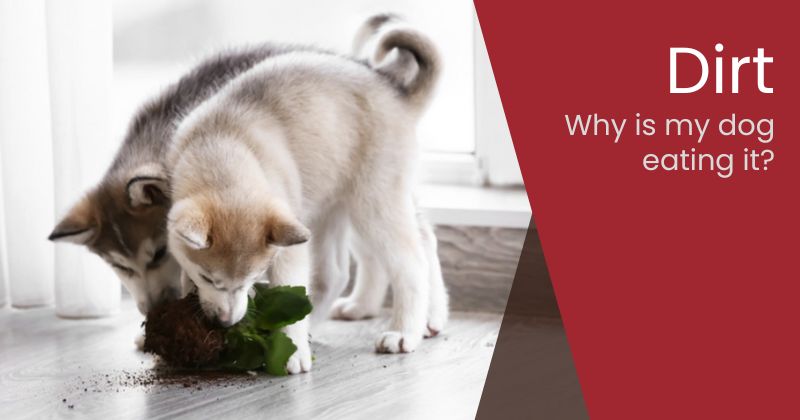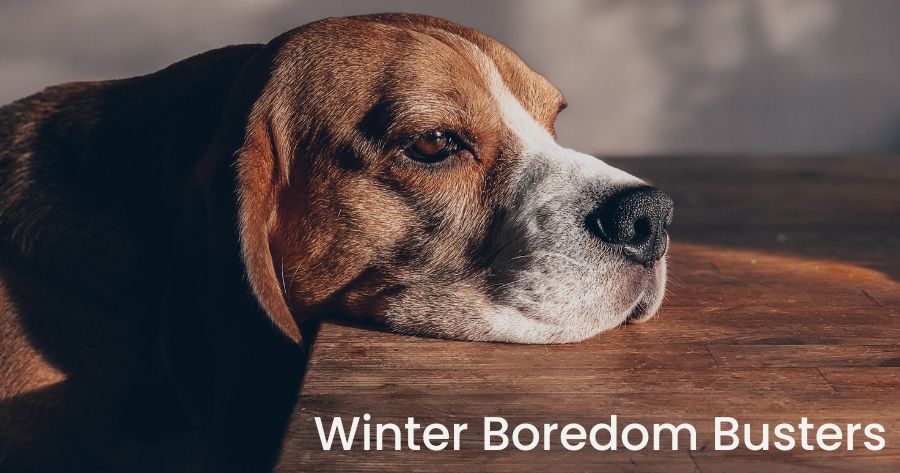
As a dog owner, you’ve likely encountered some curious behaviors, but noticing your dog eating dirt might raise some concerns. While it may seem strange, it's important to understand why it might be happening and whether it's a sign of an underlying issue. This blog will explore the various reasons why your dog may be eating dirt and what actions you can take if it becomes a frequent habit. If you're concerned about your dog's behavior, contact Wellspring Animal Hospital at (770) 385-8181 or request an appointment online.
If your dog’s diet lacks essential vitamins or minerals, they may eat dirt to seek those nutrients. This behavior, called pica, can result from low-quality food, an incomplete diet, or deficiencies in iron, zinc, or calcium. Dogs with absorption issues or on restrictive diets may also develop this habit. It’s important to address the root cause, so if your dog frequently eats dirt, consult a veterinarian. Regular check-ups at Wellspring Animal Hospital can ensure your dog’s diet meets their needs and help stop this behavior.
Dogs, like humans, may develop odd behaviors when bored or anxious. Lack of mental stimulation or exercise can lead to dirt-eating as a way to pass time or relieve stress. This is common in high-energy dogs without enough activity or in those with separation anxiety. Increasing exercise and offering engaging toys, such as puzzle feeders and interactive games, can redirect their energy. If dirt-eating persists, anxiety may be a factor, and consulting a veterinarian at Wellspring Animal Hospital can help explore behavioral therapies.
If your dog is primarily eating dirt when left alone, it could be an indication of separation anxiety. Dogs that suffer from this condition often exhibit destructive behaviors as a coping mechanism for their stress. Working with a veterinarian or behaviorist to create a tailored anxiety-reduction plan could reduce your dog's dirt-eating behavior.
Dogs with digestive problems, such as inflammation or parasites, might eat dirt in an attempt to soothe their stomachs. In some cases, dirt can have a binding effect, temporarily relieving digestive upset. If your dog is eating dirt in conjunction with symptoms like vomiting, diarrhea, or changes in appetite, it’s crucial to seek veterinary care. Parasites like roundworms or hookworms could be responsible for digestive issues that drive your dog to eat dirt. A vet at Wellspring Animal Hospital can perform tests to identify any potential GI problems and create a treatment plan.
Keep an eye out for signs of gastrointestinal distress in your dog, such as frequent vomiting, loose stool, or weight loss. These symptoms could be a sign that dirt-eating is more than just a quirky habit—it may indicate a deeper health concern that requires veterinary attention.
Sometimes, dogs eat dirt out of curiosity, especially younger dogs or puppies exploring their environment. However, this behavior isn’t always safe, as dirt may contain harmful bacteria, pesticides, or toxins. It’s important to monitor how much dirt your dog is ingesting and limit their exposure to unsafe substances. The team at Wellspring Animal Hospital can help assess any risks and provide guidance on managing this behavior.
While eating dirt occasionally might not seem alarming, consistent consumption of soil can pose risks due to environmental toxins. Pesticides, fertilizers, or harmful bacteria could be present in the dirt, leading to digestive issues or even poisoning. Always supervise your dog outdoors to prevent access to contaminated areas.
In some cases, dirt-eating can be linked to more serious health conditions. Dogs with anemia, for instance, might seek out dirt as a way to compensate for their low iron levels. Other conditions, such as thyroid imbalances or autoimmune diseases, can also trigger odd behaviors like eating dirt. If your dog’s dirt-eating is accompanied by lethargy, pale gums, or weight loss, a medical evaluation is necessary. These signs may indicate that an underlying condition is causing your dog to eat dirt. Blood tests, physical exams, and diagnostic workups at Wellspring Animal Hospital can help pinpoint any medical issues contributing to this behavior.
Anemia in dogs can be difficult to spot without a vet's help, but there are a few signs to watch for. Pale gums, weakness, and a lack of interest in usual activities could all be indicators. If you notice any of these alongside your dog's dirt-eating, it's time to consult a veterinarian.
While the occasional nibble of dirt may not be cause for alarm, consistent or obsessive dirt-eating warrants attention. Dogs may be consuming dirt for various reasons, from simple curiosity to more complex medical or behavioral issues. If you’re unsure why your dog is eating dirt or concerned about potential health risks, consult your veterinarian. The team at Wellspring Animal Hospital can help you determine whether your dog’s behavior is something to monitor or if further medical evaluation is necessary. Call us today at (770) 385-8181 or request an appointment online.


